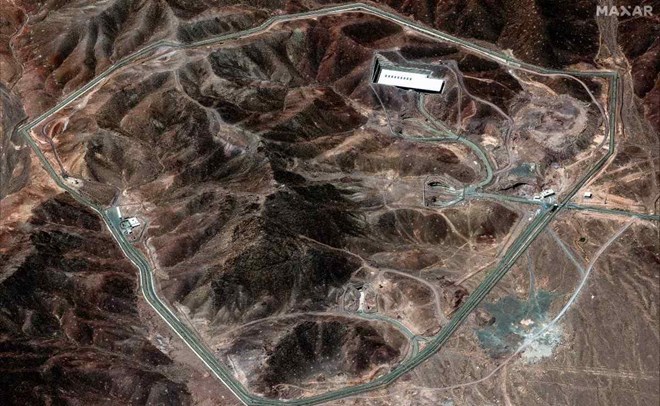Iran is considering retaliatory plans after the US bombed three of Tehran's key nuclear facilities on June 21.
Iranian Foreign Minister Abbas Araqchi said that Tehran will not return to negotiations before taking a clear response.
During a trip to Istanbul (Türkiye) on June 22, he said, "all options are being considered" before leaving for Moscow to meet Russian President Vladimir Putin.
The B2 Spirit rocket attack that Washington has just carried out is considered the largest military action from the West against Iran since the 1979, the last time the Islamic Revolution occurred.
The US airstrike targeted three nuclear locations, including Fordow, Natanz and Isfahan. Washington has used 75 precision guided weapons, including blockbuster bombs and Tomahawk missiles.
Commercial satellite images show that Fordow was severely damaged, but the extent of the damage has not been verified. President Donald Trump later affirmed that Iran's key nuclear enrichment facilities were completely and completely destroyed.

Immediately after the airstrike, Iran responded with a series of missiles targeting Israel, injuring many people and causing damage in Tel Aviv.
However, two tough moves that Iran had warned of before, which were to directly attack US forces and tighten the strategic oil transport route Hormuz, have not yet been implemented.
The biggest concern that experts are pointing out is the possibility of Iran closing the Hormuz Strait, disrupting global oil flows.
Iran's parliament has given the green light to the plan, but the final decision still needs approval from senior security leaders. If triggered, the move would not only cause volatility in the energy market but also push Washington to a new level.
Since Israel launched an air campaign against Iran on June 13, Brent oil prices have increased by more than 78 USD/barrel - the highest price since the beginning of 2025.
Not only affecting the energy market, many international airlines have temporarily stopped flying through the area. The US has also raised global security warnings and increased protection of forces in the Middle East.
The situation became more tense after President Trump mentioned the possibility of a "regime change" in Iran on June 22, despite White House officials saying Washington was not pursuing this goal.











